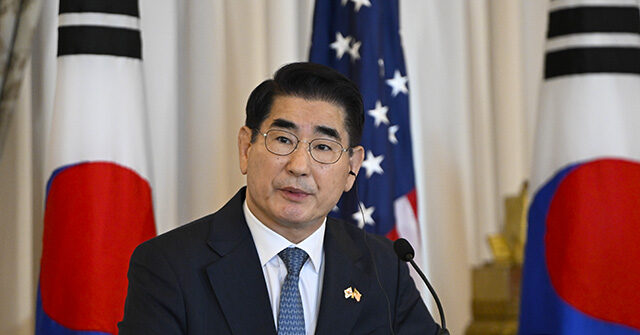On a tumultuous Thursday, South Korean President Yoon Sook-yeol accepted the resignation of Defense Minister Kim Yong-hyun amid growing chaos triggered by Yoon’s recent attempt to impose martial law. The controversial decision came after Yoon claimed that the legislature was infiltrated by anti-state elements obstructing his government’s agenda, purportedly to favor North Korean interests. His declaration sent shockwaves across the country, giving rise to fierce resistance from the National Assembly, where legislators swiftly moved to vote and counteract the martial law order, barricading themselves within the assembly chamber to ensure their vote succeeded.
Yoon’s martial law declaration was sparked by escalating tensions between his administration and the opposition Democratic Party (DP). The president accused the DP of undermining law enforcement by cutting funding for police and judicial investigations, particularly concerning investigations into party leader Lee Jae-myung. However, the DP retaliated by suggesting Yoon was using the martial law order to obstruct investigations into high-ranking officials within his own party, including himself and his wife. Kim’s resignation marked the first significant loss for Yoon’s government, leading to speculation about whether other officials might follow suit.
Chung Jin-suk, Yoon’s chief of staff, announced the appointment of Choi Byung-hyuk as the new defense minister, a retired general who previously served as the deputy commander of the U.S.-South Korean command. As protests surged across Seoul, civic groups, including the Korean Confederation of Trade Unions, rallied against Yoon’s leadership, demanding his resignation and labeling the nullification of martial law a victory for democracy. Demonstrators expressed outrage over Yoon’s brief but alarming attempt to establish martial law, harkening back to an era of authoritarian rule that the South Korean populace has long rejected.
Amid the chaos, members of Yoon’s People Power Party (PPP) proposed a constitutional amendment aimed at shortening the presidential term, framing it as a solution to the political crisis. These lawmakers urged Yoon to issue an apology to the public while emphasizing the need for accountability for those responsible for the martial law attempt. In their statements, they recognized the profound impact of Yoon’s actions on the nation and noted the historical context of democratic suppression that accompanied such declarations in the past.
Paradoxically, while some lawmakers within his own party expressed dissatisfaction with Yoon’s leadership, the PPP leader Han Dong-hoon voiced an intention to block the impeachment motions put forth by the opposition DP, which holds a majority in the National Assembly. Han’s commitment to maintaining party unity against the impeachment highlights the internal conflicts within Yoon’s administration. As the opposition advanced a motion, underlining their discontent with Yoon’s leadership and authority, it reflected the widening chasm between the ruling party and opposition forces.
The controversy surrounding Yoon’s martial law order drew international attention, prompting critical remarks from U.S. National Security Adviser Jake Sullivan, who cited concerns about the implications for South Korea’s democracy. Sullivan commended the swift actions taken by South Korean legislators to uphold constitutional principles and counter Yoon’s measures. Such remarks underscored the resilience of South Korean democracy and the unyielding stance from the American allies who continually emphasize the importance of democratic processes. The unfolding situation will likely shape the political landscape in South Korea for the foreseeable future as calls for accountability and reform resonate strongly within the nation.

